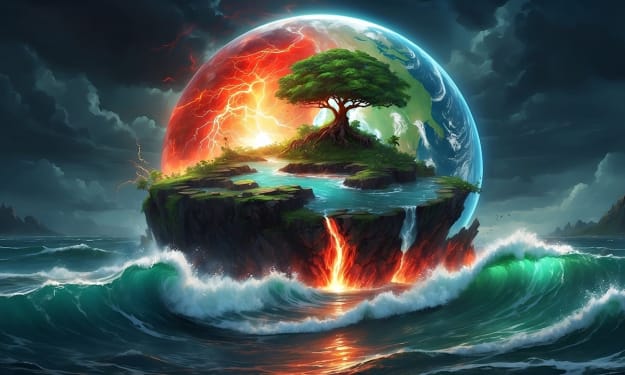Small Acts Make A Big Difference
How can we reduce our carbon footprint?

There are so many things we can do to reduce our carbon footprint but I believe one of the most important is education. I strive everyday to teach my children through example ways we can all continue to enjoy Earth for many generations to come. Reduce, recycle, reuse is practical and helpful and sharing these acts with our children is reasonable and needed.
This past year has been especially hard for everyone but there were so many blessings found within the pain. For my household, we started homeschooling. This seemed like a daunting task at first but soon came to be a task full of joy and creativity. My sons now rely on me to plan lessons, track their goals, and count on me to teach them in ways we can all understand. It also means that typical classroom lessons can be taught in atypical ways such as science in parks and history in museums. It means PE can be hikes or bike rides. Then there are days like today, which allow me to plan an outing that teaches my sons language arts, science, history, and PE all rolled into one. My youngest can now read a map better than I can and as we walked across a floating dock in a marsh, he could point out different plants, animals,and insects that help complete the life cycle. As we walked past the historical site of Henricus both sons learned about the lives of English settlers from over 400 years ago who found themselves landing in what is now called Chester, Virginia. All of these are lessons that fit our curriculum but the one we chose to focus on today was all about Earth and how we can help preserve all that Earth has to offer both individually and as a whole.
We paused on the floating dock and observed a beaver making his/her way through the wetlands and we talked about how important marshes swamps, and wetlands are and why we need them. As we continued our journey we discussed the many ways we can help the fish, beavers, turtles and other species that call the wetlands their home. We chatted about how and why littering is bad for Earth. The land where we hiked backs up to a power plant so we learned about electricity and how important it is to conserve it. We had a great field trip and family day but I hope seeing these things in real life versus online or in a workbook, will help our sons see the value in reducing our carbon footprint.
The importance of Reduce, Recycle, and Reuse are not one- time lessons. They are a lifestyle change, and implementation starts with us. We've made daily changes with the intention of setting an example for our children to mimic when they are older and responsible for their own carbon footprints. We cut out bagging groceries and now we load the groceries into bins in the trunk and carry the bins into the house and back. We ride bikes or walk and leave the car at home when we can. We pick up trash left behind by others. We eat local produce and try to be more aware of our food purchases in regards to how they effect Earth. We turn off the water while we brush teeth. We unplug items when we are not using them. We replaced our light bulbs with LED lights We keep our cars up to date on maintenance and we make sure tires are inflated properly. We make sure our appliances are EnergyStar for efficiency Hopefully today's field trip and lessons combined with our daily examples of reducing carbon footprint continue with our children to their children and so on for many future generations.






Comments
There are no comments for this story
Be the first to respond and start the conversation.